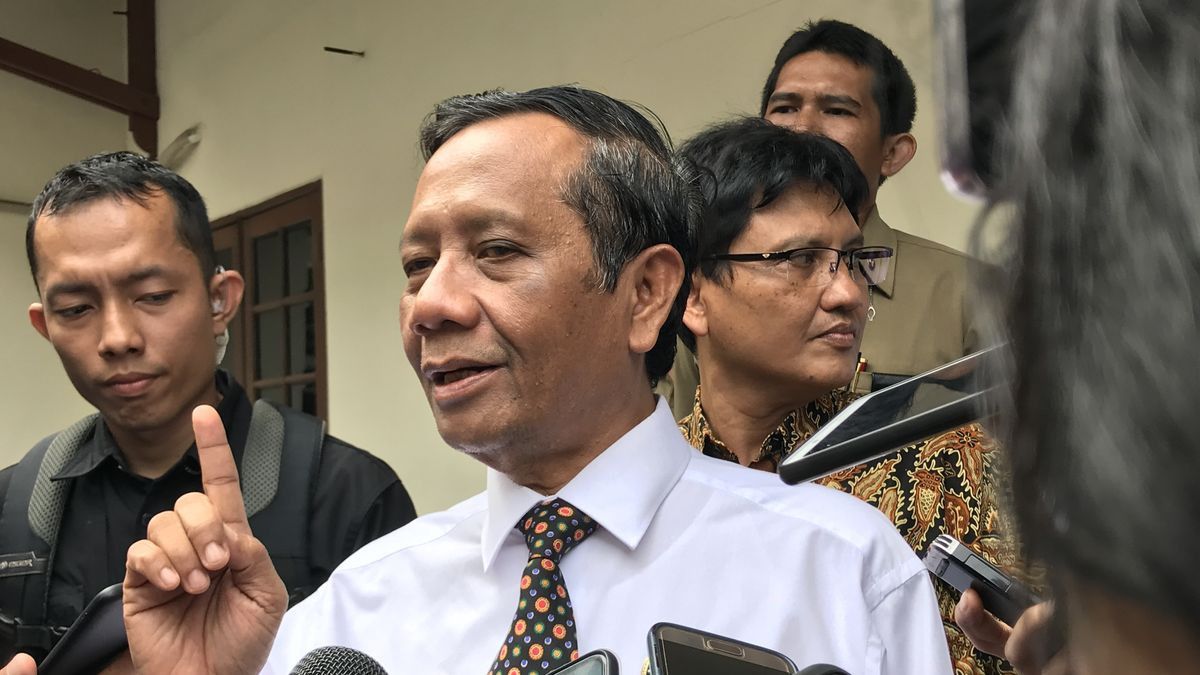JAKARTA - The government has decided not to repatriate the 689 citizens who joined ISIS and are now living in three camps namely Al Roj, Al Hol and Ainisa. This camp is under three power authorities, namely SDF (Syrian democratic forces), the Syrian government, and the government of Kurdistan.
This decision was conveyed by the Coordinating Minister for Political, Legal and Security Affairs (Menkopolhukam) Mahfud MD after a meeting with other related parties at the Bogor Palace.
"The government has no plans to repatriate terrorists, it will not return the FTF (Foreign Terrorist Fighters) to Indonesia," said Menkopolhukam Mahfud MD to reporters at the Bogor Palace, West Java, Tuesday, February 11.
The decision not to return the former ISIS Indonesian citizens was because the government wanted to provide a sense of security to hundreds of millions of other Indonesians.
Because, if these former combatants are sent home, it is not impossible that there will be a new terrorist virus in the community. "If this FTF returns home, it will become a new virus that makes the people of 267 million feel insecure," he said.
Although this ex-ISIS Indonesian citizen did not return home, that does not mean that Indonesia is then free from the threat of terrorism. According to a researcher on terrorism from the University of Indonesia, Ridlwan Habib, the state must remain vigilant about terrorist sympathizers. Moreover, currently there are still many related tissues or cells in Indonesia even though they are not active.
"The police and intelligence must be vigilant if this decision arouses a desire for revenge, for example by carrying out an attack on a government office because they are annoyed that their friends have not been sent home," Ridlwan told VOI via text message, Wednesday, February 12.
He also reminded the government to be prepared when the camp, which was used as a residence for former ISIS Indonesians, was later disbanded by the Kurdish government. Because, if this camp is really disbanded, it is not impossible for the former combatants to return through another shortcut.
"Be aware of our immigration entrances. Especially the path of rats because if they can seep in without being noticed, it will be very dangerous," he said.
Ridlwan also alluded to the government's decision not to repatriate hundreds of people from the Middle East, which could lead to a polemic in the world of domestic politics.
Given that, in recent times, many parties have hoped that the government can repatriate the former ISIS citizen. One of them is the Chairman of the DPP Prosperous Justice Party (PKS) Mardani Ali Sera and Gerindra Party politician Fadli Zon.
Apart from the polemic, according to him, it is not impossible that in the future there will be a family of ex-combatants who will then file a class action lawsuit against the hundreds of people not returning home.
"The lawsuit could arise from the family in Indonesia. The reason is that the state ignores the human rights of its country abroad," Ridlwan explained.
The legal process was asked to continue
The head of the National Human Rights Commission (Komnas HAM) Ahmad Taufan Damanik also highlighted that the former ISIS Indonesians did not return home. According to him, even though the hundreds of people were not sent home, they still had to be legally processed in connection with the actions they had committed.
Moreover, these former combatants - for adults - are deemed to have violated Law Number 5 of 2018 Article 12a concerning the eradication of terrorism because they are involved in the ISIS network or terrorist groups.
In addition, those who have attended training or become trainers or instructors as stated in article 12b are also subject to a maximum sentence of 15 years in prison.
"If they don't send them home, then what are the government's next steps, especially regarding law enforcement. We are not yet clear what steps the government will take to enforce the law against them. What are the children? Also unclear," he said when contacted by reporters via telephone line, Tuesday, February 11th.
Taufan also considered that there was an error in the government's reason for not repatriating hundreds of former ISIS citizens for security reasons. According to him, there is a mistake in understanding the resolution of the problem by using the word repatriation.
Because the repatriation delivered by the government, was impressed that the repatriation of the former ISIS combatants would not be given punishment in accordance with the applicable law. "So repatriation does not mean that the kangkong walk is like that, but it is legally processed," he said.
Even though he highlighted that the 689 former ISIS Indonesians in the Middle East had not returned home, he then expressed his appreciation for the government which is still conducting studies on the return of children under 10 years of age.
It is known that the government opens opportunities for the repatriation of children under the age of ten. It's just that not all of them will be examined and prioritized for those who no longer have parents or are orphans.
According to Taufan, the discourse on returning the children sounded good even though the government is currently studying it. "That's good," he concluded.
The English, Chinese, Japanese, Arabic, and French versions are automatically generated by the AI. So there may still be inaccuracies in translating, please always see Indonesian as our main language. (system supported by DigitalSiber.id)












